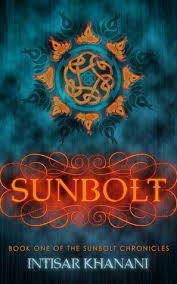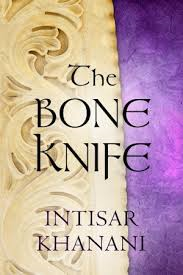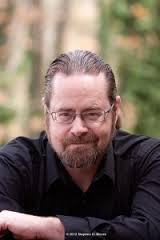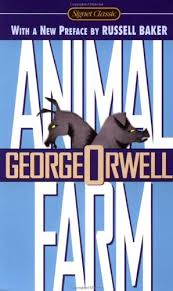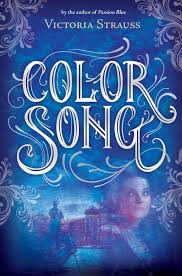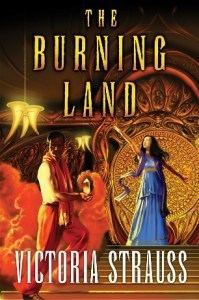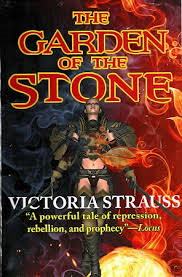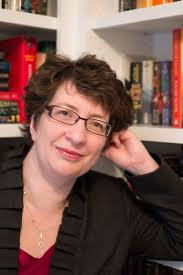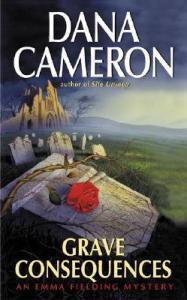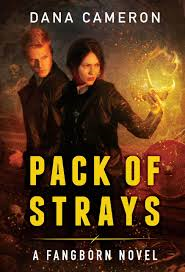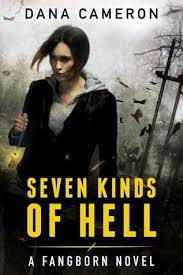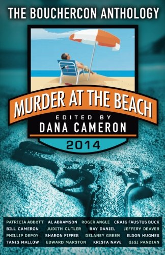R.L. Martinez's Blog, page 21
March 3, 2015
Independent Publishing and DMCA Abuse, or “How a Scammer Got My Book Blocked with Very Little Effort”
Yikes! This is so frightening and yet another reason why indie authors need a strong organization like SFWA to help protect their rights – or at least offer counsel.
 Originally posted on The Active Voice:
Originally posted on The Active Voice:
Okay, I’ve got a story. It’s a sort of scary one. I think independent/self-publishing authors need to know about it, and telling it carefully and correctly is also important for my own situation, so I’m going to take my time and lay it all out in order.
Pressed for time? You can skip to the bottom for the TL;DR summation.
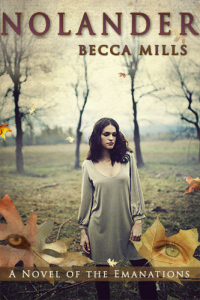
On Friday, February 27, 2015, I noticed that my bookmarked Amazon.com link to my first novel,
Nolander
, was yielding, “We’re sorry. The Web address you entered is not a functioning page on our site.” I went to my Amazon dashboard and discovered the book had been blocked.
In my spam folder, I discovered an email from Kindle Direct Publishing (KDP), Amazon’s self-publishing arm, informing me that someone had sent in a DMCA notice. In response, Amazon had summarily blocked Nolander from sale.
“DMCA” stands for “Digital Millennium Copyright Act.”…
View original 3,853 more words

February 27, 2015
Their Laughter Hides Their Loss: An Interview with Intisar Khanani
2014 was a my big introduction to indie authors. I had not, until last year, paid much attention to what indie authors were doing or to the self-publishing scene at large – I was still adamant it was traditional publishing for me or nothing. But then I began reading a string of self-published titles around the middle of the year. Those titles and their authors woke me up to all that self-publishing could be, the sheer TALENT that was waiting to be discovered. One of those books was Thorn, by Intisar Khanani. I am so pleased to have had the opportunity to interview Intisar and learn more about this wonderful writer and her work.
RLM: How did you first come to writing?
IK: I’ve been writing and telling stories most of my life, but I didn’t get serious about publishing until I was pregnant with my second daughter and decided to give up the (part-time) job I was holding. I decided if I was letting go of my public health career for the time being, I’d invest in the other career I’d never let myself take seriously before: writing. I knew it would be tough, but I figured there would be nap times and evenings in which to write, and looking back now, three years later, I am so grateful that I made the commitment to try.
RLM: You indie published your first book, Thorn. What led you to indie publishing rather than traditional publishing?
IK: I’d searched for an agent for over two years, and I was tired of it. At the same time, there were a lot of articles in the news about Amanda Hocking’s success, and my husband (who is also my greatest cheerleader) kept encouraging me to look into indie publishing. I did, and I realized it was a great fit for me: I could get my books out there on my own timeline, people would be able to find them if they wanted to (unlike the old-style vanity publishing), and my books would be mine. They’d never go off the virtual bookshelf, I could change covers, experiment with price points, and adjust how I was marketing the book. They were all positives to me, so I went for it.
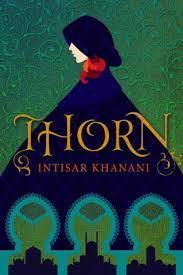 RLM: How do you balance having children and a full-time job with your writing?
RLM: How do you balance having children and a full-time job with your writing?
IK: I don’t! I don’t try to get much done during the day that isn’t kid or house related. Writing is my night-time occupation, and if I get two hours of writing in at night, I consider it a good night. I also have to include some time for the business of writing, including social media and blog posts, however minimal those may be in my case. I am really excited for next year, when I hope to start getting three or four afternoons a week to write while the kids are in school. It will be fantastic to get some daylight writing hours!
RLM: I have that same reprieve on the horizon. My youngest is going to preschool this next year and my oldest will be in all day school, so maybe our time is coming!
RLM: Back to business. You seem to utilize fairy tales a lot in your writing and your stories have a lovely allegorical feel. Tell me about the importance of fairy tales to you.
IK: I’ve loved fairy tales since I was a kid – the real ones, as well as the Disney-fied ones. Disney is great, but there’s something fantastic and frightening and real about the actual fairy tales and folk tales passed down in the oral tradition and recorded by folks like Perrault and the Grimm brothers. I started buying collections of folk and fairy tales whenever I found them, and by the time I was in high school I had a pretty diverse, multicultural collection. I think that early love (and immersion) in the language and stories of fairy tales has really influenced both my writing style and what I look for and love in stories.
RLM: You are donating a part of your proceeds from Sunbolt to the United Nations Children’s Fund. What was the impetus behind that?
IK: Well, Hitomi’s an orphan in a foreign land, and she ends up on the run a lot. She’s a natural at making allies, and she starts out the story with a strong support network, but she really could have done with UNICEF to help her out, especially those times she had to resort to stealing to get a meal. Since I couldn’t give her UNICEF, I figured she could give to them.
RLM: Obviously, you are very socially conscious. Is there then a message in your stories that you want readers to grasp?
IK: Yes and no. There are a lot of themes and ideas that creep into my stories, but I don’t want my readers to be looking for them and I sure don’t want to hit readers over the head with a sledgehammer to make sure they get “the moral of the story.” I hope that there’s something in each of my stories for readers, but what speaks to them most clearly will depend on them. For some, Sunbolt is just a fun seat-of-your-pants read that helps them take a step away from whatever is happening in their lives, for others, there are issues of racism that come to the fore, for yet others, there’s the question of violence and what it does to us. To me, Sunbolt has a bit of all of these; I just hope that each reader gets what they need out of the story.
RLM: Writing can be a lonely and draining process. How do you keep spiritually strong and your mind well-oiled?
IK: I had a bit of a rough time keeping that balance this fall. Two things have helped: keeping a journal (which I’m pretty bad at, but I do pick it up when I hit a low), and what I term “social writing.” I have a couple of writer friends, and a few evenings a week we get on either Skype or Facebook and write together. We’ll check in, find out what everyone’s working on, and then log off for an hour to write. At the end of the hour, we can talk about what we managed, what we’re excited about (or not), and then potentially do another writing session. Honestly, this has helped me tremendously, because I know there’s someone I have to answer to at the end of that hour… I don’t want to have to admit to spending half an hour reading tweets or scrolling through Tumblr during a writing session. And the social aspect of it keeps me excited about writing, and helps me think through things that I might otherwise struggle with for hours if not days.
I also make sure that I’m taking care of myself spiritually and physically – for me, that means yoga and zumba at least twice a week, plus making the time for a learning circle with other young Muslim women on a regular basis. And of course, my kids keep me active and laughing!
RLM: What book/story do you wish YOU had written?
IK: All. Of. Them. Just kidding! I don’t know that I wish I had written any other book that I’ve read, because I’m always so grateful to dive into another well-written story and revel in it. But I sure would love to have tea with Jane Austen.
RLM: I’m subscribed to your newsletter, but I just can’t wait! Tell me about the Shadow League.
IK: The Shadow League is actually my street team. We have a Facebook group and mostly just chat and have fun together. We’re pretty laid back, and we’d love to have more folks join us!
RLM: How is work going for the Theft of Sunlight trilogy? And the next installment to Sunbolt?
IK: I’m currently working on Memories of Ash, the sequel to Sunbolt. It’s decided to turn into a full-length novel, and it has a mind of its own, which should explain to some degree why it will be published a year behind schedule. (I also had to take some time off to focus on my kids last year, so that added on to the timeline.) I’m hoping to get Memories out this summer, and then I’ll shift gear to The Theft of Sunlight. I actually have the whole trilogy drafted, they’re just really patchy drafts and… in many ways, I don’t feel like I found the heart of the story for the first book. After spending a few months banging my head against it, I put it away and worked on Sunbolt. Now that I’ve had some time to let it sit, I’m planning to go back and try again. I love Rae, so I’m hoping to give her her due soon!
Make sure you pick up your copy of Intisar’s story “The Bone Knife” for free at most e-retailers. This fascinating short story introduces kicks off The Theft of Sunlight trilogy. In it, we get to know the heroine, Rae, and her family. We also learn how she came by “that nifty bone knife she uses throughout the trilogy.” Connect with Intisar on Facebook, Twitter, Goodreads, Pinterest, and at her website.

February 23, 2015
Pixies and Dragons and Vamps, Oh MY!: An Interview with Samantha Warren

And, to continue my new focus on women speculative writers, I’m pleased to have Samantha Warren as my next interviewee. Samantha, in her own words, “…is a fantasy/sci-fi author who spends her days immersed in dragons, spaceships, and vampires. She milks cows for fun and collects zombie gnomes.”
RLM: How did you first come to writing? Specifically what drew you to speculative fiction?
SW: I’ve always been a fan of speculative fiction for as long as I can remember. One of the first books I can remember loving was The Riddle of Penncroft Farm, about a ghost. The love of writing came much, much later, in my late 20s when I realized I actually had a talent for storytelling.
RLM: You are an indie author/publisher. What led you to indie publishing rather than traditional publishing?
SW: At first I tried the traditional route. I sent out about a dozen queries and got back 3 (yes, only 3) rejections. They all said something along the lines of “It’s good, but we don’t think we can sell it.” I was learning about self-publishing then and decided to give it a try since I HATED querying with a passion. I love it and wouldn’t change my decision if I had the option to go back and do it again.
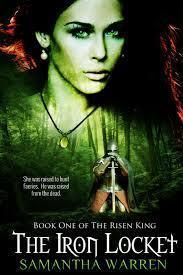
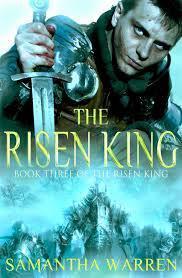
RLM: So, your Quick and Dirty Guide series provides guidance to other indie author/publishers. What was the impetus behind creating such a series?
SW: I’ve made so many mistakes during my journey, mistakes that I wouldn’t have made had I found a mentor of sorts. There’s a lot to self-publishing, but the very basics of it are super simple and it shouldn’t be so hard to find them. So I created the Quick & Dirty series to help alleviate the pain I went through for those who read them. :)
RLM: You are attempting to crowdfund the first volume of your Steam War series. This is something I’ve toyed with as an indie author, but lack the courage to attempt. Tell me how it’s going and what you’ve learned about crowdfunding for authors.
SW: It’s tough, there’s no doubt about it. It requires a whole lotta work and a lot of setup. And those you think will support you won’t. Crowdfunding is becoming very big in the music and movie industries, and I am absolutely positive that one day it will be the same for the publishing industry, but right now, it’s still seen as begging. (Hint: it’s not begging and it’s not a donation. The readers/supporters get as much out of it as the author. It’s basically a preorder with other cool stuff thrown in that you wouldn’t get otherwise.) Check it out at http://steamwars.pubslush.com. The next 7 people to support at $50 or over get a batch of homemade scones (made by me!).
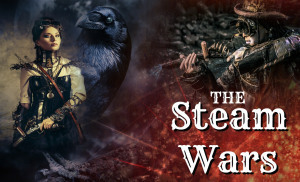
RLM: And speaking of the Steam War series, it veers from your fantasy/urban fantasy emphasis. What’s prompted your dive into steampunk?
SW: I love reading steampunk, and I have a sci-fi/fantasy/steampunk serial series out, Space Grease & Pixie Dust. This will be my first attempt at true steampunk, though.
RLM: You also write poetry. Have you or have you ever considered putting out a poetry collection?
SW: I’ve toyed with the idea, but I don’t write enough of it to really call it a collection. Maybe someday when I feel the urge to branch out a bit more. :)
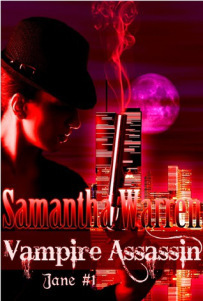 RLM: You’re a very prolific author. Is writing your only job now, or are you a night-timer? If the latter, how do you structure your time/life to allow you time to write so much?
RLM: You’re a very prolific author. Is writing your only job now, or are you a night-timer? If the latter, how do you structure your time/life to allow you time to write so much? SW: Writing isn’t my only job. I used to think I wanted it to be, but then I realized if I was a full-time writer, I’d never leave the house and I’d be such a hermit it would be awful. I like to say that writing is my day job and I moonlight at my other job. I know I’m more productive in the morning, so I make sure I don’t have to go into the other job until the afternoon. That way I get the important stuff done first (aka: the writing).
RLM: Which of your main protagonists is your favorite? Why that one?
SW: Hmm, that’s a tough one. They all have unique qualities that make them awesome, but I’d have to go with Zuzy & Flinch, my pixies from Space Grease & Pixie Dust. They’re fun little magical beings who are always in a heap of trouble no matter what they do.
RLM: If someone completely unfamiliar with your writing asked you which of your books they should read first, which would you suggest? Why that one?
SW: Since I write such a variety of stuff, it would depend on what they’re interested in. If they like sci-fi, I’d say Space Grease & Pixie Dust. Horror would be Massacre at Lonesome Ridge, romance is The Iron Locket. Vampire Assassin is an easy, quick read and leads into a good series. It’s also free, so that’s often how people find me.
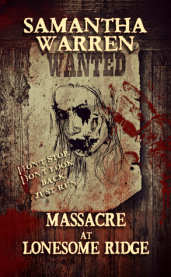
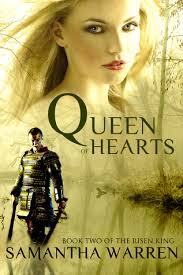 RLM: What one piece of advice, that you wish someone had given you at the start of your writing/publishing journey, would give to newbie authors today?
RLM: What one piece of advice, that you wish someone had given you at the start of your writing/publishing journey, would give to newbie authors today?SW: Everyone’s journey is different. No two people come to success the same way. You are the only you and no one else has to walk in your shoes, so find what works for you and do it. Don’t let anyone tell you that you have to do something a specific way. The only thing all writers have in common is that they write.
Visit Samantha’s website to learn more about her and her books. You can also catch up with her Facebook, Goodreads, Pinterest, and Twitter. Plus, don’t forget to swing by her Publush campaign to check out all the awesome incentives up for grabs.

February 13, 2015
What You Hoped for All Along: An Interview with Andi O’Connor
Help me welcome acclaimed fantasy author Andi O’Connor.
RLM: Share with me a little about your upbringing, specifically what led you to make writing your career.
AO: My mom was a great reader and instilled in me her love of reading. I grew up surrounded by books and weekly treks to the library. In my early teens, my mom bought me the Shannara series by Terry Brooks, and I immediately fell in love with his writing and the fantasy genre. I still have those books and my special ‘Terry Brooks Shelf’ has grown significantly.
Writing just sort of happened for me. I didn’t take any writing classes and was actually a cello performance major in college. I’ve always been extremely creative and imaginative, again encouraged by my mom. One day I got the idea for a story and just started writing. I did it casually, frequently shelving it for months or years at a time. Then, after my mom died in 2011, I decided to sit my butt in the chair and finish it in her memory. It became a last tribute to her and to the wonderful, powerful influences she had over my life. Once I finished I decided it couldn’t hurt to look to get it published, and things just grew from there.
Since then I’ve written two more novels and three short stories. Silevethiel was named to Kirkus Reviews’ Best Books of 2013 and Redemption is a Kindle Book Review, 2014 Kindle Book Awards Semifinalist. Awakening was released on February 5th and is the second book in The Dragonath Chronicles. It’s already received quite a lot of praise from the public as well as professional review sites including Kirkus Reviews, Red City Review, and Foreword Clarion Review.
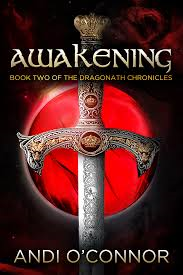 RLM: Tell me about your publishing journey. What led you to make the choices you did?
RLM: Tell me about your publishing journey. What led you to make the choices you did?
AO: When I started looking to get The Lost Heir published, I did research on how to prepare the manuscript and where to find agents and publishers looking to take on fantasy novels. Like any author, I got a ton of rejection letters but did eventually get offered a contract by Black Rose Writing. My decision to sign on was done as a fledging writer who still had a great deal to learn. It wasn’t until after I signed on that I realized everything the owner had said was cleverly worded fluff. I realized too late that Black Rose Writing is essentially a vanity press without ‘being’ a vanity press. I didn’t pay to have my book published, but they certainly made a lot of money from me when I purchased my author copies, and they didn’t spend their own money or resources in editing, designing the cover, or promoting the book.
It was then I decided that since I was essentially doing everything myself I would self publish my next book and actually be happy with the end result. So for Silevethiel and my short stories Redemption and Reclamation I started my own publishing imprint Purple Sun Press and released everything myself. I hired a professional editor, cover designer, and interior formatter. The short stories are only available in eBook, but I released Silevethiel in hardback as well as eBook. It’s amusing to me when I go to festivals and signings because most people assume The Lost Heir was self published and Silevethiel was released by the publisher when in fact it is the other way around.
Self-publishing is rewarding, but it entails an exceptional amount of work. I was recently contacted by another publisher, Margaret Media, and have just signed on with them. They are going to release the second edition of all my works, and I am looking forward to working with them in publishing future works.
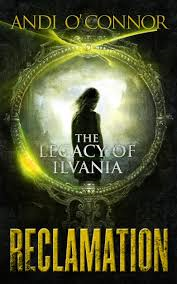
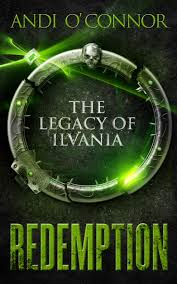 RLM: Your Dragonath Chronicles play on the classic quest set-up. What do you think characterizes and sets apart this series from other quest fantasies?
RLM: Your Dragonath Chronicles play on the classic quest set-up. What do you think characterizes and sets apart this series from other quest fantasies?
AO: While the story line in The Dragonath Chronicles and all of my writing deals with the main character’s goal to achieve an objective, I don’t think of it as a classic quest set-up. And indeed, I don’t think it should be classified as such. I find it to be a rather simplistic and limiting categorization.
My books, though fantasy, deal with so much more than a simple quest. They’re about the physical as well as the emotional journey the characters take. They’re about real issues. Real situations. Real emotions. I don’t write stories merely for entertainment. I create them to be exceptionally relatable and to make my readers think and perhaps look at a situation or event in a different light.
I get deep into the characters’ thoughts and emotions. As a result, my characters are sometimes difficult to flat-out love or hate. They’re complex and often times transform before the readers’ eyes. They learn from their mistakes, from events, and from the actions of others. They’re ever-changing and grow beyond the people they start out as when we first meet them. My stories aren’t just about a quest. They’re about people. They’re about life.
RLM: What does a typical work day look like for you?
AO: Writing is my full time job (I know…I’m crazy) Usually once I have coffee in hand, I’ll spend my mornings working on promotional and administrative tasks. This is when I’ll answer interviews, work on blog posts, updated Twitter and Facebook, etc. I’ll also use this time to go through sales and update my accounting and inventory, which is definitely NOT one of my favorite things. I also use this time to get any books packaged and shipped.
The afternoons I spend writing or editing. I have three series going on simultaneously, so I switch between them quite frequently. Thankfully, it’s relatively easy for me to jump from one world to another. There are times when I’m not in the mood for a particular world and I’ll switch to another. Up until now I’ve been rather free with what I’m writing and when. However, now that I’ve signed on with a publisher I imagine my schedule won’t be able to be quite as forgiving! I usually write until early evening, though I frequently work again later at night and on the weekends.
RLM: When you’re writing, what do you read to help keep your brain spinning? Who are some of your favorite authors?
AO: I read fantasy and lots of it. Unfortunately, I don’t get as much time to read now as I used to, but I still do it whenever I have the chance. I do have favorite big name authors: Terry Brooks, Ursula LeGuin, Juliet Marillier, Anne McCaffrey, Mercedes Lackey, Jonathan Stroud, and the list goes on.
Lately I’ve been finding that I read less of the big authors and more of the self published or small press authors. I joined an online book club called Rave Reviews Book Club and it’s introduced me to a lot of new fantasy/sci-fi authors. I enjoy reading these authors because it does really keep my brain spinning. The more I write and evolve as an author, the more I’m able to pick out things that do and don’t work. I love the freshness of these authors and the worlds/characters they create. I don’t feel bogged down reading these books like I sometimes do with the better-known authors who are known for a particular world or series. The lesser-known authors aren’t pressured by publishers and fans and have the freedom to let their imagination run wild, and I find it to be truly inspiring.
RLM: Which of your characters is your favorite? Why that one?
AO: I feel like my answer to this question changes on a daily basis! There’s a strong connection to each of my characters even though they’re so different and it’s difficult to choose just one! Nevertheless, I think I’m going to go with Jae from my short stories Redemption, Reclamation, and soon to be Retribution.
The thing I love about Jae is we see so deeply into his mind. We experience his emotions and feel his turmoil. He grew up in a society where all children, especially girls, are treated as property and seen only as a way to make a profit. Jae was essentially sold into slavery by his parents. We meet him in the beginning of Redemption locked in his cell at the College of the Mé’Draak. We feel his utter despair and pain. Yet we also feel his hope and his incredible will to fight and overcome his situation. We see the strength of his convictions.
He has such great courage and doesn’t let the beliefs of others dictate his actions. He stands up for what he knows is right, regardless of the standards of society. This starts to become evident at the end of Redemption but is extremely apparent in Reclamation and Retribution. He sees women as people, not as property. Because of this, he’s faced with some difficult choices, and we feel his inner frustrations as he’s forced to make some of the most burdensome decisions anyone could ever make, such as whether to chose the life of an unborn child or the life of the mother. We can learn so much from Jae. And he continues to teach me something new every time I delve into the world of Ilvania.
RLM: Unlike many women fantasy writers, you chose to focus on a masculine hero for your Dragonath series as well as for your The Legacy of Ilvania stories. What led you to make that decision? What difficulties have you encountered writing from a male perspective?
AO: The first thing to say in response to this question is that I don’t write from the perspective of any of my characters, male or female. I don’t put myself in their position and think of what I would say or do. I’m not them. They’re their own people. They lead me and guide me through their journey. They speak to me and tell me what to write.
I’m going to be brutally honest and say that I cringe when I hear authors give advice and tell fledging writers to think of what they would do if they were in a character’s situation. To me, that is the worst piece of advice someone could give. The characters are their own people and should be treated as such. Unless an author is basing a character heavily on themselves and their personal experiences, they should never put themselves in the character’s shoes.
The sex of my characters honestly isn’t something that is a huge decision for me. The main character in The Dragonath Chronicles is male simply because I felt like having him be male. But my readers will notice that he’s not the typical male hero in fantasy. He’s weak, unsure, confused, yet he does have an inner strength that he’s struggling to find. Indeed, most of the people who are supporting him and helping him find that strength, and who are arguably stronger characters themselves, are female.
Jae was chosen as a male to fit in with the confines of the world I created. Ilvania is extremely patriarchal. Women are seen as property. There is no way a girl would be sold to the Mé’Draak. No female would ever be seen as fit enough to fight for the Kingdom as a Mé’Draak. The main character had to be male. But again, Jae isn’t the typical male protagonist. As I stated in the previous answer, he stands up for what he knows to be right, even though it goes against the standards of society. He doesn’t see women as property. And the way he treats them is a stark contrast to the other men he meets. Consequently, he makes an extremely powerful statement. More so than if I’d made his character female.
I don’t have difficulties writing from a male perspective, because my characters whether they are male or female don’t fall in stereotypes. I push boundaries when I write. I don’t think ‘what would a man do?’ I don’t let my characters become limited by the boundaries our society puts on them based on sex. If I did, none of my characters would be who they are. And none of my books would have the powerful meanings they do.
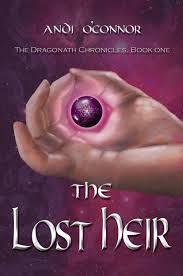 RLM: Tell me about your actual writing process. Are you a “planner” or a “pantser”?
RLM: Tell me about your actual writing process. Are you a “planner” or a “pantser”?
AO: I am most definitely a pantser! A lot of people ask me how I come up with things or what’s going to happen next. And I hate to say it, but the best answer I can give them is ‘I don’t know.’ I don’t outline. I don’t plan. I get the basic spark of an idea and I just start writing. The characters develop and lead me through the story. Events and actions come to me as I go.
I find outlines to be extremely limiting. I don’t know the true personalities of the characters until I begin writing, and I don’t know how they’re going to evolve or how the events of the story will play out. For me, I think writing an outline or planning out the plotline for a book would be a complete waste of time because I’d stick to it for about five seconds.
I do take notes as I go and look up certain things to make sure I’m being consistent throughout the series, but I stay clear of any form of planning. When I wrote Silevethiel I didn’t even know what I wanted to have happen by the end of the book. Now that I’m working on the sequel, it’s the same thing. I have no idea what will happen the end. Who will live, who will die. I simply write. And when I reach the end, I know.
RLM: What most supports your writing?
AO: Compared to all my other lengthy answers, it’s going to seem like someone else wrote this answer, though I assure you that wasn’t the case. What most supports my writing is life. It’s what makes my fantasy so real. And I can’t say it any better than that.
RML: So, what can we look forward to from you?
AO: Currently I’m working on the sequel to Silevethiel, though I may pause here and there to do another short story or two in The Legacy of Ilvania series. After Sil 2.0 is finished (title has yet to be determined…if you couldn’t guess) I’ll head back to Dragonath and finish up that series. I don’t plan on being one of those fantasy authors who has fifteen books in a series. I think in those situations many people get bored and simply keep reading because they’ve invested so much time they want to know how the series ends. I would much rather prefer to continue with a separate series in the same world, perhaps a generation or two after the end of the first series. Of course, I may just create a fourth world and start a whole new adventure! You never know!
Catch up with Andie on her website as well as on Facebook and Twitter.

February 7, 2015
Startling Poetry: The Breath of Others
Thought I’d offer you another selection from my book Wild Horses Don’t Stop at Whoa (only .99 through Amazon’s Kindle store or Smashwords)
“The Breath of Others” by Robin L. Martinez
The phone cradles the curve of my cheek,
presses the voice into the rims of my ear,
into the lobes of my brain.
Only a voice filled with the
sweat, the spit, the blood, the taste,
the arms, the skin, the lips and
tongue, the breasts and buttocks,
the tears, the troubles, the heat, the cum, the stories,
the salty-sweet smell,
the breath of others –
only a voice so burdened and so heavy –
can fit into my ear like this;
can wrap phone lines around my neck
and rip my head off
like this.

January 30, 2015
Take Out Their Vile Eyes: An Interview with James A. Moore
RLM: What first drew you to become a writer?
JM: I love telling stories. Initially I wanted to work as a comic book illustrator. I had neither the actual skill nor the talent, nor, frankly, the patience to learn them. But when I was showing an editor from Marvel Comics what I had illustrated he told me all that was wrong and suggested I try my hand at writing, because I was telling a good story, I just wasn’t drawing it very well.
RLM: How old were you when you decided this was what you wanted to do for a living?
JM: Around 20 or so. Then I had to do that whole learn a new trade thing.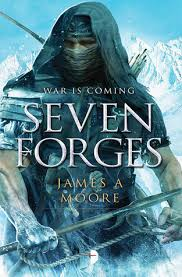
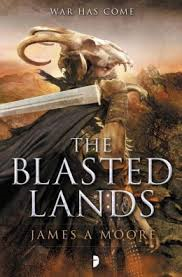
RLM: You’ve recently ventured into writing YA. Has that affected the way you write? What drew you to start writing for a younger audience?
JM: The only difference, for me, between writing YA and writing more mature works is that I make sure I behave myself a little better. Less vulgarity and a slightly less graphic nature in the violence and carnage. And in the case of Subject Seven, the publishers felt it would be better put to use as a YA novel than as an adult one. There are a few serious differences actually, all kidding aside. But most of those are the length of the work and the nature of making sure you aren’t going overboard. In traditional publish, especially, you have to be aware of the length of the work. I mean, my first ever book was 170,000 words long. My third book was over 300,000 words. No YA publisher would consider a book that size unless your name is J.K. Rowling or you’ve already proven yourself. I was asked to keep my books under 70.000 words. Aside from that, I was asked to, for lack of a simpler way to explain it, keep the work around a PG-13 instead of an R rating.
RLM: Your work covers numerous genres, horror, dark fantasy, thrillers, graphic novels, and nonfiction. How does your approach change between genres?
JM: It doesn’t. Look, any genre has certain “tropes,” certain ideas that are almost supposed to be there. A western set in Victorian England won’t work quite the same as one set in unsettled Indian Territories where the railroad is being built, but the characters can potentially be the same in both tales. You can tell the same story. It’s the setting that changes in that sort of case. I have always believed in mixing genres a bit. Frankenstein is technically science fiction in one sense and horror in another. It’s also, no surprise, a gothic tale. For me the differences are only what the story wants to be. How I execute them is the same, give or take certain formatting requirements. I have a novella out called The Wild Hunt. I have a publisher that wants to make it into a graphic novel. For that I have to tell the tale in a different way. Otherwise, it’s the same tale. RLM: I’m always curious to hear about other writer’s work day. Tell me about your daily writing routine.
JM: I get up and go to the day job. I work around 40 hours a week at a coffee shop. Good benefits are a lovely thing and so is steady income. I come home do a little work-out regimen, then I go down and write. Normally for anywhere between three and six hours a day. Repeat as necessary.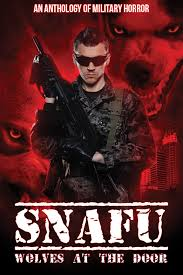
RLM: If you had to pinpoint one element that differentiates good fantasy writing from bad fantasy writing, what would that element be? The same with horror writing.
JM: Storytelling. I know that sounds like a weak excuse but I mean it. Stories are about characters, plot, and pacing. If I read a fantasy story that sounds like someone reciting their last Dungeons & Dragons adventure, I’m bored. Give me characters I care about. Give me actions that have consequences and then show me those consequences. Let me see the characters evolve. Make me give a damn about what happens to them. Without that, you have bad stories, regardless of the genre.
RLM: There is a section on your website called “Dinner for One.” Tell me about that.
JM: Dinner for One started out on my LiveJournal not long after my wife passed away. Bonnie was sick and in declining health for most of a decade. That didn’t much matter to me, because I’m an old fashioned guy. I made a vow to my wife: In sickness and in health, for better or for worse, until Death do we part. I kept that vow. No matter what was happening I planned my life around the fact that I had married my one true love. And then, she died. It’s an experience that changes you. It’s exactly that simple. Because of who I am, I couldn’t just bottle it up forever and I wasn’t going to burden my friends and loved ones with my sorrows. So, instead, I wrote them out and examined them. Dinner for One is the end result. The only reason it’s still up for people to read is because I had several people write me and thank me for what I’d written. They said it helped them in some way, so I figure if there’s anything in my journey through my grief that’s helping other people, I’ll leave [it] there for them to find. Sooner or later I’ll see it in print.
RLM: If someone completely unfamiliar with your writing asked you which of your books they should read first, which would you suggest? Why that one?
JM: Probably Seven Forges or Serenity Falls. I think I’m better at a longer length and both of those are long stories that evolve and cover a lot of distance.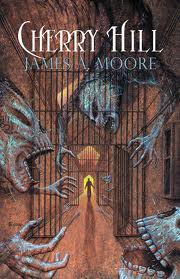
RLM: Is there one subject you would never write about as an author?
JM: Nope. I’ll write about anything. I’ve written about subjects that made me uncomfortable on several occasions.
RLM: Awesome! Then tell me what subject, in your opinion, has been mishandled by other writers and how do you think you would handle it?
JM: One subject I think is mishandled regularly is rape. Far too often people think of it as a sexual act and it’s not. It’s violence against another person. As far as I’m concerned it should never be written to titillate or excite. It should be written about as what it is: a dominance and power-play that, unfortunately, happens all too often in real life. If it must be written of (and I have written of it before and likely will again because often my writing deals with dark subjects) then I think the act itself should less significant than the emotional consequences of those actions.
RLM: What, in your opinion, is the responsibility of writers in today’s world?
JM: In fiction: to entertain and possibly enlighten. In non-fiction, to tell the truth while entertaining and possibly enlightening.
RLM: Snafu is your most recent project. Tell me about that.
JM: Snafu is a great anthology. It’s a series of war stories with a supernatural twist. And there is now a series of the anthologies. The notion is simple enough: tell a war story with monsters. Sometimes the monsters are human. Sometimes they are something else. Sometimes they are both.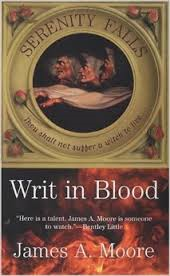
RLM: You’ve worked with a number of different publishers over the course of your career. What, for you, is the most valuable asset a traditional publisher brings to the table?
JM: Experience. Listen, first and foremost I think traditional publishers are a testing ground. There are people who will, I have no doubt, hate me for this answer, but I think it’s important to know whether or not a story is well-written enough to get published. Sometimes, unfortunately, the answer is “no.” In those cases, a lot of people get upset. I prefer to look at what I’ve written and try to understand WHY the answer was no. It’s like any craft, you have to learn and you have to improve. If you fail at this, the fault is not with the publishers. It’s with you, the writer. Good editing, good direction, experience in formatting, layout, artwork, proofreading, and design are nearly priceless in this industry. You doubt me? Go look at a few hundred of the titles at Amazon where those aspects are noticeably lacking and then we can talk some more about it.
You can connect with James on Facebook, Twitter, and through his website.

January 28, 2015
What I Learned from ANIMAL FARM
One summer evening when I was in high school, I was sitting in the parking lot of my part-time job (Captain D’s, worse job I ever had, by the way). It was just before 5pm and was hurriedly finishing a book.
After I read the last words and my eyes slid off into the white space beneath, I gingerly closed the book, laid it gently on the passenger seat, closed my eyes, and let out my breath in a rush. I glanced at the book cover – a grey pig and donkey (each with yellow, demonic eyes) stood back to back above a dark blue band embellished with the author’s name. And behind them marched the title: Animal Farm.
I started this book as an amusement (my high school didn’t assign awesome literature like this so I had to discover it on my own). But my amusement became fright soon enough. I still don’t understand why Animal Farm had such a powerful and immediate effect on me. I knew less about politics and government than an ostrich with her head in the sand. However, Orwell made something shift in me as I read his little package of TNT. I think he made me realize that when power lies in only one set of hands, that set of hands will ALWAYS use it for ill purposes. History is filled with examples of horrid kings and dictators, but those entries into humanity’s fallacy could not do to me what Orwell did with his story about a menagerie of idealistic animals. Only they could teach me the dangerous and pernicious nature of a totalitarian government.
The most shocking aspect of this experience was the mindset I brought to it. I came to Animal Farm thinking the Russian Revolution was a romantic, adventurous period in history. The fairytale of Anastasia and the glitter of the Russian court can sometimes camouflage the horror of that time (and the many decades following it). All too often, people believe fictions that do more harm than good because they dilute or remove the lesson, the truth. These fictions are more insidious the more pleasurable they are. Too often, we concentrate on the romance and drama, ignore the darkness and suffering. Sometimes I think people today walk around in a perpetual state of hypnosis, drugged by reality TV and sports. But in that moment, sitting in my car, Orwell stripped away all that glamor and myth from life, and made me see the naked, shivering reality beneath. I could SEE and understand.
The animals of the farm also taught me how easy it is to become a fanatic about one’s ideals; or how effortlessly our ideals can be twisted for the benefit of selfish, greedy people. Communism and the beautiful society it sought to create were corrupted beyond recognition through the laziness, dark desires, and greed of a small group of people.
Orwell could have been writing about any religion in the world, though. Shared spirituality, or religion, should represent a safe place for people to retreat to when life grows burdensome. Christians have beautiful precepts of love and sacrifice and mutual support to guide us. Our teacher and model was the son of God, for crying out loud! Jesus was humanity perfected, whose sole purpose was the liberation of everyone – present and future. But, people are people. Some, who profess to love and follow Christ use him and other Christians as stepping stones to their own ambitions. Worse, they brandish the Bible and Jesus like a weapon, warding off those they find unacceptable.
Animal Farm was written as a satire. Orwell meant to poke fun at a self-righteous, destructive group of people. But besides the ability to laugh at the many debacles we, as humans, get into, it’s important to perceive the need to keep our convictions as pure as possible. To allow other people to rearrange our ideals for their own agendas is to, in fact, allow OURSELVES to be used and twisted – and ultimately discarded.

January 26, 2015
Drawn Onward, Ever Onward: An Interview with Victoria Strauss
RLM: While you’re working on a story, what in particular do you read to help you along, get your brain oiled and ready to go?
VS: Reading is essential. I couldn’t survive without it! If it’s a project that demands research, I may read research materials (though I usually do the bulk of research before starting to write) – but otherwise, I don’t have any particular preferred reading matter. I read whatever takes my fancy, whether it’s in my genre or not. I’m not one of those writers who feels it’s necessary to avoid books in the genre I’m currently writing.
RLM: Your books often take on tough political and social issues. What do you think is the role of speculative fiction in society?
VS: Speculative fiction can shed light on real-life issues, and I think it can do so in a particularly powerful manner by mirroring those issues in invented worlds that don’t carry the baggage or the preconceptions that real-world settings do. The shift of context can make it possible to present those issues in fresh ways, or to turn them into allegories.
That said, I don’t think that spec fic writers have any duty to address tough issues. Literature can be social commentary, but most people read for entertainment. As much as I’m drawn to writing about difficult ideas, I always try to keep in mind that my readers want a good story, too.
In terms of speculative fiction’s place in society, there’s certainly a lot of visual media with fantasy or SFnal content–but I think that written speculative fiction is pretty marginalized. It has the smallest readership of any genre, and, like romance, is seen by most mainstream readers as hack writing (Ursula Le Guin and J.K. Rowling notwithstanding).
RLM: On a related note, what, in your opinion, is the duty of authors in today’s world?
VS: Honestly–and I don’t mean to sound cynical or snarky–I don’t think authors have any duty, other than to themselves and their own talents. If you’d asked me that question twenty years ago, I might have given you a different answer – back then, I had a much more idealistic view of writing and the writer’s role. I’ve since become more pragmatic. As an author, I’m just trying to survive.
RLM: Your Stone Duology deals with the tension between traditional ways of life and new technologies. In our technology driven world, what is the place of storytellers and keepers of the past?
VS: I think we’re losing our sense of the past, to some extent, in part because there’s so much more present than there used to be. We’re bombarded by content, by choices, by goods and services, by current events. It all encourages us to be in the moment, rather than looking back or ahead.
However, there will always be a place for storytellers, and technology is actually proving that, with the explosion of music and art and books and stories that has come with the digital revolution. The incredible success of digital self-publishing speaks both to readers’ hunger for stories and writers’ drive to tell them.
RLM: If you had to pinpoint one element that differentiates good fantasy writing from bad fantasy writing, what would that element be?
VS: I think that writing is writing, regardless of genre, and what makes bad fantasy writing is just…bad writing. There are as many definitions of “good” as there are good books, but bad books all tend to share certain qualities: poor pacing, cardboard characters, unconvincing settings, poor style.
One thing that often does predict bad or cliched spec fic writing is someone jumping into the genre who isn’t really familiar with it. Some pretty well-known writers are guilty of this.
RLM: Do you ever write yourself into a corner? If so, how do you work around that?
VS: I’m a pre-planner (I create a detailed synopsis and do character sketches before I start writing), so I don’t write myself into corners very often. But I do get stuck – a lot. It’s nearly always because I’ve made a mistake of some kind – lost sight of the character, planned the scene wrong, started it at the wrong moment… the list goes on.
I used to freak out when this happened, because it can feel like a complete dead end, and even if you sense that you’ve gone wrong, you don’t always realize right away what your mistake is. But it happens to me so regularly that I’ve learned to accept it as part of my writing process. Sometimes I can unstick myself in an afternoon. Sometimes it takes a few days. Once, horribly, it took over a month. But because I know I’ve gotten through it before, I know I’ll get through it again. That does help.
I’ve developed a sense for what I need to do to get past it. Sometimes I know I just have to keep banging my head against the wall, writing and re-writing till I get it right. Sometimes, I need time off. Going for a walk often helps, or doing some sort of non-writing project, or going away for the weekend. And as unpleasant as it is to be stuck, there’s nothing like the feeling when you finally break through the wall and know you’re back on track.
RLM: How much of your own life and experiences makes it into your fiction?
VS: I think all writers put themselves into their fiction, in the sense that you can only write about what you can think or imagine. Inevitably, your own feelings and perceptions will color what you create. But I’ve never had any desire to write about myself or my experiences or people I know. For me, fiction is a way to explore different realities, not dwell upon my own.
RLM: You are a cofounder of Writer Beware. What was the impetus behind the formation of this watchdog site?
VS: People often ask me if I got involved with Writer Beware because I was scammed. The answer is no – by and large, my publishing experiences have been positive. But I was pretty ignorant when I began to seek publication, and while scams weren’t anywhere near as common as they are now, it was luck more than anything else that prevented me from falling into questionable hands.
Around the time I first went online, in the mid 1990’s, several major scams were just beginning to implode, in part through writers’ discussion of their experiences on the Internet: scam book doctor Edit Ink, fraudulent vanity publishers Northwest Publishing and Commonwealth Publications, and the notorious Deering Literary Agency with its satellite vanity publisher, Sovereign Publications. (There are descriptions of all these scams on the Case Studies page of the Writer Beware webste.) I was at first fascinated, and then horrified, by this fraudulent shadow-industry, which I hadn’t known existed. When I saw a call on the SFWA website for a volunteer to create an online resource on literary fraud, I jumped at the chance, and began to put together the website that would become Writer Beware.
At the same time, Ann Crispin, who at the time was SFWA Vice-President, was working on establishing a Committee on Writing Scams, with the mission of gathering information on literary fraud, and finding a way to disseminate this to writers. Neither of us was aware of what the other was doing until a mutual acquaintance put us in touch. Our efforts seemed to dovetail perfectly, and we decided to join forces.
Writer Beware now includes not just the website, but a blog, a Facebook page, and a free advice service (writers can email us with questions or complaints). We’re still sponsored by SFWA, and we get additional support from the Mystery Writers of America, the Horror Writers Association, and the American Society of Journalists and Authors.
Sadly, Ann passed away in 2013. She was not just a colleague, but a dear friend. I miss her.
RLM: How has your work for Writer Beware impacted your career as a writer?
VS: Writer Beware and my writing are two separate tracks that I follow. There doesn’t seem to be much crossover. The opportunities I’ve received as an author and those that have come my way as a result of Writer Beware are not related. For the people who follow Writer Beware, my books give me the credibility to do what I do but aren’t really of interest; and for fans of my writing, Writer Beware is part of my resume, but not really relevant. So I don’t think Writer Beware has helped my writing career at all. I can only hope it hasn’t hurt it!
RLM: What’s next? What are you working on?
VS: I have a book just out: Color Song, a historical novel for teens set in 15th century Venice. In February, Open Road Media will be re-issuing four of my out-of-print books, including my Way of Arata duology (The Burning Land and The Awakened City) These two books are the ones I think best represent me as a writer. I’m thrilled to have them back in circulation.
I’m also revising and updating another of my out-of-print YA novels, Worldstone, for self-publication. And I’m working on several ideas for new novels. I’m not sure yet which one I’ll pick.
To connect with Victoria, visit her website. Or, log on to Facebook and Twitter. You can also reach her through the Writer Beware portion of the SFWA website.

January 23, 2015
Wretched Old Tatters of Paper Run My Life: An Interview with Dana Cameron
RLM: When you’re writing, do you think at all about who will be reading you?
DC: Yes and no. When I start a project, I try to write something I would be excited to read myself. You won’t engage anyone if you’re bored reading your own work! In revisions, however, after my beta readers have responded to the work, I think about the broader audience and how to make it entertaining for the greatest number of readers, while maintaining my own voice and aesthetic.
RLM: How do you react to a bad review of one of your books?
DC: Poorly! I’ve found that I’m so distressed by bad reviews, no matter how unfounded they may be, that no good review, no matter how great, can make up for them. It takes a long time to shake off a bad review and I don’t have time to spare, so I’ve learned not to read any reviews that my publisher or agent don’t send me. But because it is important to consider negative feedback, my husband keeps a spreadsheet with the main points of every review he finds and gives me “the executive summary” of what I might want to consider changing in the next book or what readers really love—and want more of. It’s much more productive and far less toxic for me.
RLM: Tell me about your daily writing routine.
DC: I watch TV with breakfast, preferably something familiar with a narrative (ideally, “Buffy the Vampire Slayer,” “Angel,” or “The Sopranos”) that I can think about critically while I wake up. That gets me in the writing frame of mind and I warm up after that with email and checking Facebook or Twitter. I write until about one, then lunch and maybe errands, and then I either write more or edit. When I’m in the middle of a project, I try to get between five and eight pages a day, whether in one book or across several different WIPs.
I schedule things very carefully, with a year-at-a-glance calendar on my wall to keep track of projects. This daily routine goes out the door at the end of a book, because the ideas come very quickly, tying everything together. My record for those days is about twenty pages, but it’s not pretty.
What for you is the most difficult part of the writing process? What is the easiest?
Plotting is the hardest for me, followed closely by character description. Because I write out of chronological sequence, working on whatever scene springs to my mind, it takes a long time for the main themes I’m exploring to gel; that really only happens when I’m about half-way through the book and things start to tie together. Character description is hard because I have an ideal in my head that seems to falter when I try to write it out. What usually works in that case is for me to have one character think of the one I’m trying to describe and blend the physical description with that character’s emotional response.
The easiest thing for me is editing. I love that feeling when you see a clunky sentence or a plot point that doesn’t make sense and you fix it! I find a great deal of satisfaction in that.
RLM: On average, how much research do you conduct for your books?
That’s an interesting question for me, because when I started writing the Emma Fielding archaeology mysteries, I worried because I never seemed to do any research. Then I realized I’d already done twenty years of research, in the form of my first career in historical archaeology! It’s also hard to estimate because I incorporate a lot of my experiences in traveling into my books. Setting is very important for me, especially with the Fangborn series, because I like to find ways to incorporate my superheroic vampires, werewolves, and oracles into the history and traditions of world cultures.
I tend to write any book doing just enough “spot research” on something I don’t know about to give see if it gives me other ideas I can also use. After I have a good rough draft, I’ll go back and do more research, find experts, etc., to make sure I get details right.
Also: Research is a good excuse to buy new reference books!
RLM: Do you ever write yourself into a corner? If so, how do you work around that?
I get rid of the corner, so far as I, can without changing the rules of my world and/or cheating the reader. When I’m finding it hard to write something, it’s either because I’m trying to avoid writing a section I know will be emotionally difficult or because I’m trying to make a character do something that is contrary to his or her nature. The interesting thing is that often, if I say it out loud, as if I’m telling someone what’s going on and what should be happening, I find the answer to my problem.
RLM: You recently edited an anthology of mystery stories to support the Long Beach Public Library Foundation. Tell me how that project got started?
My part in it began when Janet Reid and Ingrid Willis invited me to edit the anthology. I was honored and thought it was a terrific idea which, by including both the well-established guest of honor stories and work by authors who’d never published before, really emphasized the big tent of Bouchercon.
I was very grateful to them, the contributors, Down and Out Books, and the team of preliminary readers who really helped the project take off. I’m delighted to know they’ll be doing a similar project for Bouchercon Raleigh.
RLM: How did the role of editor versus author feel? Do you think this is something you’ll do again?
DC: While I always knew there’s an art to editing, it was made very clear to me when I tried it myself. I’d absolutely try it again, as it’s a chance to work with terrific writers.
RLM: An entire section of your website is devoted to educating writers. What, if any, responsibility do you think established authors have towards new/emerging authors?
DC: If there is a responsibility, I think it’s to demystify the process of writing. It’s not magic, there’s no one simple formula. Writing takes talent, sure, but there’s also a hell of a lot of work involved and that shape of that work will be different for everyone. I think one of the hardest things to learn is how to edit your own work, to be able to step outside it and improve it, because that takes a balancing act of listening to good critics and trusting your own instincts.
I like to teach, so it was natural for me to add those sections to the website. Every time I do a workshop or a class, I add to them.
RLM: What’s next for you? What are you working?
DC: This coming March, my third Fangborn novel, Hellbender, will be out. I’m excited about that, as I left my protagonist Zoe Miller in a very tight spot at the end of Pack of Strays! I have a Sherlockian pastiche and another Fangborn short story to write. I’m planning my next addition to the Fangborn series and I’m starting work on a novel featuring Anna Hoyt, the 18th-century Boston tavern owner and “problem solver” I’ve introduced in several of my “colonial noir” short stories.
You can connect with Dana through her website or on Facebook and Twitter.

SPECIAL ANNOUNCEMENT!
Wild Horses Don’t Stop at Whoa is only .99 the rest of this week. Just one dollar (the price of a gas station coffee or crunchy taco at Taco Bell). Pick up your copy today in Amazon’s Kindle store or the Smashwords store while the getting’s good!




